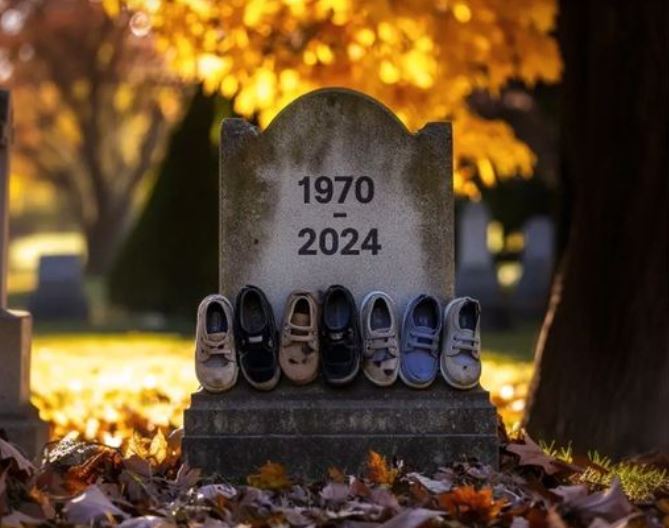Ellen’s visits to her late husband Paul’s grave became a ritual, seeking solace in her grief. However, she stumbled upon a mysterious phenomenon – tiny children’s shoes would appear beside his tombstone. Initially, she dismissed it as a mistake, but as the shoes kept coming, Ellen’s curiosity turned into an obsession.

Determined to uncover the truth, Ellen eventually caught the person responsible – Maya, Paul’s former assistant. The revelation shook Ellen to her core: Maya and Paul had a secret child, Oliver, and the shoes were a symbol of their connection.
As Ellen confronted Maya, she expected anger and resentment. Instead, she saw a broken woman consumed by grief and guilt. Maya explained that Paul had been involved in Oliver’s life, and the shoes were a way for their five-year-old son to feel close to his father.

Ellen’s world crumbled, but as she gazed at the shoes, something shifted. She realized Oliver’s innocence and decided to put aside her anger. “You don’t have to stop,” Ellen told Maya, “if it helps Oliver.”
In that moment, Ellen’s perspective transformed. She saw the shoes not as a reminder of Paul’s infidelity but as a bridge to a new life. Ellen proposed an unthinkable idea: “Maybe there’s still time for me to be involved in Oliver’s life.”

Maya’s surprise turned to gratitude, and Ellen began a journey of forgiveness and self-discovery. As she welcomed Oliver into her life, the little shoes became a symbol of hope and new beginnings.
Ellen’s story raises profound questions: How do we respond to betrayal and loss? Can forgiveness lead to healing and redemption? As Ellen navigated the complexities of her emotions, she discovered a family she never knew she needed.

The tiny shoes, once a source of unease, now represented a connection to Oliver and a chance to rewrite her own story. Ellen’s experience serves as a poignant reminder that love, forgiveness, and new beginnings can emerge from the darkest moments.


